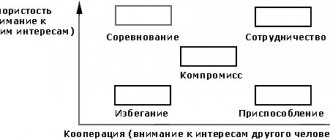A lot of things irritate us. Endless traffic jams, rising prices for housing and communal services, crazy street style heroes, rude waiters, lazy subordinates and ruined dates. And, in theory, we have every right to be upset and angry when something doesn’t go according to plan or someone lets us down.
But where are the limits of irritation? I know crazy fits of anger that make it hard to breathe, my head starts to hurt, I feel feverish, my heart is pounding. For me, such flashes ended with me slamming my fist into the nearest target - a wall, a table, someone's face, a car's side mirror (sorry, neighbors). When it ended with a broken arm, it became clear that this aggression was primarily harming me and something needed to be done about it.
While the inner Hulk was contained by a completely external cast, I began to think about my behavior and read all the books and articles about outbursts of anger and control of emotions. The basic advice of counting to 10 and breathing slowly when you get angry was annoying, but sometimes it worked. Simple counting worked worse. But by concentrating on breathing, I managed to distract myself from anger. But my favorite method is to run at least 100 meters (very quickly), or do 15 push-ups (I don’t recommend it with a broken arm), or do 30 sit-ups. All the anger goes into physical exercise - a kind of outlet for emotions, but at the same time with benefit for you and without harm to others (many people, during outbursts of anger, take it out on loved ones - they shout, scold, beat).
It is more correct, of course, to deal with aggression not here and now, but in the long term. Here are some tips to help you cope with anger attacks.
Don't be categorical
Categorical nature, maximalism, perfectionism - all these qualities enhance manifestations of anger. People who are too demanding of themselves and others are much more likely to experience disappointment and collapse of hope. Calm and phlegmatic people react to this with frustration, while more impulsive people may experience outbursts of aggression.
Start looking at things more simply and stop judging. Our world is not ideal, but that does not stop it from being beautiful. Forgive people for their weaknesses and imperfections, take off the mantle of judge and just enjoy life.
Get rid of the excellent student complex. You should not strive for excellent results in everything. Sometimes it is enough to do something with a C grade in order to leave time and energy for more important things.
What is anger
Anger is the body’s defensive reaction to danger, an irritant, infringement of boundaries, a violation of internal balance. It is common to all people. Each of us is familiar with anger.
Another question is when anger becomes a character trait and permeates a person’s entire life. Then the individual is always dissatisfied with everything and torments himself and those around him. This situation requires getting rid of chronic anger.
Anger is hormones. And sometimes behavior correction is not enough. So, hormonal levels can always be imbalanced when:
- alcohol abuse;
- passive or overly active lifestyle;
- malnutrition;
- health problems.
To identify and eliminate this cause, it is worth visiting several specialists (psychiatrist, endocrinologist, nutritionist, narcologist). In this article, we assume that your hormonal levels are normal, and we analyze the problem of anger from a psychological perspective.
Why is anger dangerous?
“As a rule, the villain himself suffers from the anger that is aimed at people,” - Ferdowsi.
- Anger destroys not only the individual’s relationship with society, but also the individual himself. This happens first. Both restraining negativity, silencing it, and regularly splashing it out on others have an equally detrimental effect.
- Anger attracts real illnesses (psychosomatics), destroys families, friendships, and work relationships.
- In some cases, anger turns into self-aggression and self-destructive behavior or other deviations.
Looking for a reason
“All anger comes from powerlessness,” Jean-Jacques Rousseau.
- The reason for anger is almost always the same - dissatisfaction. Think about what is bothering you currently. What you want but can't get.
- The second option is that anger masks fear, resentment, pain and personal uncertainty (the best defense is attack).
- Anger is a sign of weakness, instability, intrapersonal conflict, psychological trauma and problems.
Do auto training
At the beginning of the 20th century, the German scientist Johann Heinrich Schultz laid the foundations of autogenic training. Since then, this method has been actively used in many areas that require control over one’s own condition. It combines self-hypnosis and immersion in a trance. With its help, you can also curb your destructive emotions.
The simplicity of this technique makes it accessible to absolutely everyone. It is performed in several stages.
- Find a comfortable position and relax. Make sure that you are not distracted by extraneous stimuli.
- Mentally say the phrase: “My right hand is getting heavy” several times. Try to create a feeling of heaviness in your hand. You can imagine that you are holding an object, such as a dumbbell.
- When the sensation becomes clear, do the same with your left hand. Then with the legs, stomach, back, head.
- Once you feel heaviness throughout your body, you can move on to the next stage. Now you need to create a feeling of warmth. Mentally say: “My hand is warm.” You can imagine immersing your hand in hot water or exposing it to the scorching sun. And then proceed according to the scheme already familiar to you.
- Now you need to learn to control your breathing. Repeat to yourself 5-6 times: “My breathing is calm and even.” The exercise is considered mastered when you can voluntarily slow down your breathing rhythm.
To effectively manage your emotions, these exercises will be enough for you. Do them every day, and soon you will be able to achieve a high level of self-regulation. You will become subject to not only your emotions, but also some physiological reactions of the body.
Developing a sense of humor
Managing aggression through humor and laughter. Many people are familiar with the situation when a person is angry at someone or something. But as soon as you make him laugh, the irritation subsides, although it does not disappear completely. This suggests that laughter and humor are incompatible with overt aggression.
It is important to know that it is possible to get rid of aggression and irritability with the help of gentle humor, but there is a danger of going too far . Inappropriate or harsh humor, close to sarcasm and ridicule, can work against the person who decides to use this method. Some scientists even consider humor to be a side effect of aggression. So you should be careful, tactful and not joke about provocative topics - this can only aggravate the situation.
Add activity to your life
If anger is your frequent companion, you may be lacking in physical activity. Increased levels of adrenaline in the blood can cause strong emotional reactions. It is successfully neutralized by active muscle work.
The most universal advice is to go in for sports. There is nothing better neither for physical health nor for moral. Sports train endurance, self-control, willpower, and endurance.
To relieve tension during a temper tantrum, boxing and sprinting are good options. You can take out all your anger on a punching bag, and you will immediately feel better.
However, to learn how to channel the energy of anger into a peaceful direction, these sports are not suitable. Psychologists advise choosing non-aggressive activities with a small number of participants. Another useful component is breathing techniques. During attacks of anger, the breathing rhythm is disrupted. By learning to control your breathing process, you will significantly reduce the severity of your emotional reaction.
Oriental martial arts are perfect: aikido, judo, karate. In addition to sports, they also have a spiritual component. The key concept of their philosophy is acceptance. The point of the fight is not to attack the enemy, but to parry the blow beautifully and accurately.
Unmotivated aggression in adults
Uncontrollable attacks of aggression in adults are most often caused by constant stress, lack of sleep, and fatigue. The body is constantly under emotional and physical stress. Irritability increases, short temper and imbalance appear. Often these emotions remain unconscious, and when the accumulated irritation turns into an attack of aggression, the person does not understand why he reacted so sharply.
RELATED MATERIALS: Senile aggression - what to do?
Outbursts of rage can be the flip side of good manners. From childhood, everyone is told about how cultured people should behave, they are taught to be obedient and calm, “A car is being taken away from me that I play with? I have to give it away. After all, we need to share!” Such a child turns into an adult with the firm conviction that screaming and swearing are bad. When his rights are infringed, he cannot fight back, but an unpleasant aftertaste remains in his soul. Discontent is growing. As a result, it suddenly breaks out in the form of inexplicable and uncontrollable aggression.
It is believed that rage and depression are opposite, mutually exclusive concepts. However, in fact, in this state a person, on the contrary, becomes more susceptible. These emotions remain inside, which provokes increased aggressiveness in a person after getting out of depression.
Speak out
Share your problem with a loved one. Outline the situation, ask for advice. Sometimes an outside perspective allows you to look at a problem from a different angle.
Those who are closest to us suffer most from our anger and aggression: husband or wife, child, friends, colleagues. Naturally, this does not have the best effect on relationships. One day you may wake up in the morning and realize that everyone has turned their backs on you.
To prevent this from happening to you, ask for forgiveness for outbursts of anger in advance. Tell them that during moments of strong emotions you cannot control yourself and can do something stupid. At the same time, you work on yourself and learn to control yourself. After such a confession, your loved ones will begin to be more lenient towards your emotional outbursts. Don't abuse this attitude, but really work on yourself.
More rest and sleep
Rest and sleep not only improve the general condition of the body, they give strength to restrain negative emotions, preventing them from causing aggressive reactions.
A tense person is easier to offend than a relaxed one, so rest and get enough sleep. It is important to go to bed before midnight, since sleep from 10 to 12 pm is the deepest and most beneficial for the body . You need to sleep at least 7-8 hours a day
The benefits of rest and sleep are difficult to overestimate. When treating many diseases, one of the first recommendations will be exactly this - rest and get enough sleep. This advice will also be relevant during the menopausal period.
Get rid of expectations
The most common cause of anger is unjustified expectations towards others and oneself. A person can make grandiose plans in his own head, without taking into account the will of others. When it turns out that other people are in no hurry to implement these plans, a person may lose his temper.
You need to get rid of expectations. You can't even imagine how interesting and exciting life can become if you add a healthy dose of not giving a damn. Allow people to be who they want to be and act according to their will.
Don't try to push, pull, or manipulate. Treat them and life in general with respect. Rely only on yourself, don’t expect anyone to make your wishes come true. Then you will have practically no reasons for anger, and communication will begin to bring pure pleasure.
Types of aggression
The psychology of deviant behavior is a relatively new branch of psychology that deals with the study of behavior that does not fit into the framework of law, morality and ethics. It is under her competence that aggressiveness falls.
Psychologist E. Bass compiled an expanded classification of aggression. He pointed out that, according to purposefulness, hostility is divided into 2 types:
- Instrumental aggression. It serves as a tool to achieve some goal. For example, my goal is to sit on the bus, but all the seats are occupied, I can quarrel with someone so that he gives up his to me. This is a spontaneous attack of hostility directed at a random person;
- Targeted (motivated) aggression is pre-planned actions aimed at a specific object (to take revenge on a partner for betrayal; to watch for the offender after school to hit back; to deliberately humiliate or insult a person who is unpleasant to the aggressor). The purpose of such an act is to cause physical or moral harm. Motivated aggression is more often shown by people who grew up in an unfavorable social environment, deprived of normal upbringing, attention and care of their parents.
Analyze situations that cause anger
Observe yourself and try to identify the triggers that trigger aggressive impulses. This could be a specific word, phrase, some action in your direction. Analyze why such an inadequate reaction occurs. Most likely, the psyche turns on defense, trying to protect itself from something.
Let me give you an example. My friend couldn’t get pregnant for a long time, although she and her husband really wanted a child. She was very worried and suffered about this. When someone touched on the topic of motherhood in her presence, she could say something angrily, start swearing, and raise her voice. Then, naturally, she apologized and repented.
Knowing your pain points, you can prevent anger and save your own and other people's nerve cells. Ask your loved ones not to talk about certain topics in your presence. Avoid traumatic situations. And of course, take care of your mental health. If something “hurts” you, you need to work hard on it. If you can’t cope on your own, seek help from a psychologist. It will help you extract all your cockroaches from your subconscious and deal with them.
How to stop being an aggressive person?
In order to stop being an aggressive person, you need to eliminate the root of the problem. Negative emotions arise as a result of any problems (internal or external).
If the problems are external and at the same time quite obvious, then you can work on a vulnerable area of life (no friends, tense relationship with a loved one, layoffs at work).
If the problems are internal (childhood phobias, personality disorders, psychological trauma), then it will be very difficult or even impossible to cope on your own. Therefore, it is better to consult a specialist (psychologist).
Control your breathing
During an outburst of anger, blood pressure rises and breathing quickens. No wonder they say that a person “chokes with anger.” By learning to control the process of inhalation and exhalation, you can quickly cope with your emotions.
I suggest you master the following breathing technique.
- Find a comfortable position and relax.
- Breathe freely for a few seconds and then inhale in four counts.
- Hold your breath for two counts.
- Exhale, like inhale, let it also last for four counts.
- Again, hold your breath for two counts.
When this breathing becomes comfortable for you, begin to gradually increase the time of inhalation and exhalation. Next time during an attack of anger, try to breathe just as smoothly and deeply. This will allow you to find peace within yourself and curb aggression.
Identify your symptoms
It will be much easier to calm down if you try to neutralize yourself not at the peak of anger, but when you only feel the first signs of an attack of aggression. Try to record how your body begins to behave when you are angry. Is your heart rate racing? Are your hands shaking? Is it becoming difficult to breathe? Are you starting to speak slurred? As soon as you notice the manifestation of one of the symptoms of anger, start counting to 10, breathing, running, squatting, watching a cartoon or calling your mother. Do anything to calm down.
Avoid pointless arguments
In a dispute, it is much more often not truth that is born, but aggression. Especially when the subject of the dispute is not objective things, but views, judgments, conclusions and conclusions. In the first case, you can quickly resolve the dispute by resorting to Google. But one can argue endlessly about subjective points of view.
If you are an emotional, hot-tempered, impulsive person, arguments are strictly contraindicated for you. Learn to express your point of view without entering into open confrontation. The following phrases will help you.
- “I heard you. But, unfortunately, I cannot agree.”
- “I take a different point of view.”
- “I have no desire to argue with you. Let everyone remain to their own opinion.”
- “I respect your point of view, but it contradicts my principles.”
And you should refrain from the following phrases.
- "You're wrong".
- “Your arguments are baseless.”
- “You don’t understand anything about this.”
- “Don’t argue with me, I know better.”
Middle age crisis
If such cases have not been observed before, then sudden aggression in a 35-year-old man can most often be associated with a midlife crisis. The age of maximalism is left behind, and the man begins to weigh whether all the decisions made were really correct, whether it was a mistake. Literally everything comes into question: is this the right family, is this the right woman, is this the right direction in one’s career? Or maybe it was worth going to another institute and then marrying someone else, or not marrying at all?
Doubts and hesitations, an acute sense of missed opportunities - all this weakens the nervous system, reduces the level of tolerance and sociability. It begins to seem that there is still time to change everything in one jerk. Everyone around seems to have conspired and does not understand this emotional impulse. Well, they can be put in their place by force, since they do not understand good. Fortunately, the midlife crisis passes sooner or later. The main thing is to remember that periods of despondency are normal, but this is not a reason to ruin your life.
Avoid communicating with provocateurs and trolls
There is a category of people who like to deliberately piss others off. They, like parasites, feed on other people's negative energy. The stronger the other party's emotional response, the more pleasure such people receive.
If you are a very impressionable and emotional person, you better avoid these comrades a mile away. How to recognize them? Their favorite habitat is the Internet. In the vastness of the World Wide Web, they can frolic to their heart's content while remaining unpunished.
There are many trolls in various social communities, especially political ones. They choose a victim and begin to provoke him into conflict. They use insults, ridicule of someone else's point of view, and distortion of facts. Moreover, the provocateurs themselves are indifferent to such actions against them. It is extremely difficult to promote them emotionally. By the way, this is something worth learning from them.
A provocateur can, for example, enter a community of fans of a famous artist and start throwing mud at him. Or start promoting childfree ideas in a public for young mothers.
If you already know a little how to manage your emotions, try using provocateurs for training. When entering into a duel with them, try to remain calm and not react to their antics. Focus on getting the provocateur emotional and thus winning. Just don’t get too carried away, otherwise you risk joining their ranks.
Treatment
You can correct the level of irritability and aggressiveness through special medications.
Among the over-the-counter drugs, one can highlight sedatives based on valerian, passionfol, motherwort and St. John's wort .
Even if they do not have a pronounced effect, they relieve the nervous system and do not provoke side effects.
Novo-passit and Persen also have a good calming effect .
If aggressive behavior prevents a person from living a full life, working and interacting with society, the doctor may prescribe drugs from the following groups:
- mood stabilizers;
- neuroleptics;
- tranquilizers;
- antidepressants;
- nootropic drugs.
Sublimate your anger
Transforming the energy of anger into creativity is aerobatics. Great artists, musicians, and sculptors master this art perfectly. I'll tell you a funny story about the artist Michelangelo Buonarroti.
While he was working on the Sistine Chapel, he was constantly pestered by an official named Biagio da Cesena. Being a stupid person and far from art, he criticized the work of the great master and found fault with every little thing. Buonarroti had a very hot temper. Once he even threw a bucket of paint at the Pope himself, who came to hurry the artist.
However, this time Michelangelo did not immediately take out his anger. He came up with a more sophisticated way. He depicted the official on a fragment of the Sistine Chapel in the image of the hero of Greek myths, King Minos, with donkey ears. But this was not enough for the master. The apogee of revenge was the snake entwining the king’s body and biting him on the genitals.
In this unusual way, the artist achieved two goals at once: curbing his anger and punishing the offender. We are unlikely to be able to repeat him, but the general principle is worth understanding. The next time you feel angry, try channeling the resulting energy into something useful.
The easiest way is to use it to destroy what you no longer need. For example, prepare the apartment for renovation: tear off the wallpaper, remove tiles, etc. Or get rid of the trash that you haven’t decided to throw away for a long time.
read books
I offer a selection of books that will help you better understand the nature of anger and reduce its manifestations:
- “Anger Management” by Dan Dubravin;
- “How to get rid of resentment and anger” Pavel Fedorenko, Ilya Kachay;
- “Taming Anger” by Gary Chapman;
- “Practice joy. How to manage anger” Thich Nhat Hanh;
- “Tame your dragon. Anger in the family” Ekaterina Burmistrova;
- “Healing from Anger” Dalai Lama XIV;
- “Fear, anger, sadness and joy” Yulia Panfilova.
Useful materials for those who want to cope with anger easily
As I promised at the beginning of the article, I recommend you several very high-quality courses that will help you manage your anger and not give in to emotions at all. They will improve your relationships with others at work and help you interact more easily with friends and family.
Emotional intellect
Description. Start with this course. It will help you remain calm and confident even in very difficult situations. You will understand the diversity of your emotions, identify their true nature and learn to control them. It's not as difficult as it seems.
You will also easily feel which people sympathize with you, and which, for certain reasons, behave warily with you and suppress aggression.
The course teachers especially recommend their program to all those who have to work with a large number of people, as well as to parents who are raising teenage children. Getting angry, yelling at the child - believe me, this is not a solution, you will only aggravate the problem.
Author: Oleg Kalinichev.
Cost: 1,490 rub.
Find out more and sign up for training
Effective Communication
Description. After listening to 33 lectures and completing 15 extensive practical exercises, you will easily communicate with people, not allow yourself to “break down”, and not incite conflicts around you.
The course teaches you to control your emotions very well, even when you have to communicate with difficult people. You will also learn to understand well the emotions of the person with whom you are communicating at the moment, and you will be able to react as circumstances require.
The total duration of training is only one month. The cost of the course is small compared to the price of attending offline seminars or signing up for personal consultations.
Author: Oleg Kalinichev.
Cost: 1,490 rub.
Find out more and sign up for training
Brain Detoxification
Description. Have you tried to figure out what exactly makes you angry and makes you very irritated? Maybe the reason is not in those around you, but in yourself, in your peculiarities of perception of reality?
This course is short, with only ten lessons. It helps to get out of your head everything that interferes with a normal life, irritates or causes other unpleasant emotions: melancholy, fear.
You will be able to easily cope with stress in all its forms. The theory that is taught as part of the course is reinforced with practical exercises and simulators, so you will have a lot of practice.
Author: Victor Shiryaev.
Cost: 1,490 rub.
Find out more and sign up for training
Brain fitness
Description. The course page says “an innovative format for brain training” - these are not empty words. After purchasing this material, you will receive from Vikium a unique device, the likes of which I have not yet seen on the Internet. It's called the “neural interface”.
The neural interface will record the electromagnetic waves that come from your brain during different emotional states. The data is then transferred to the Wikium platform and analyzed there to create a list of personalized recommendations.
Try recording yourself when you are angry about something and cannot control your anger, and when you are relaxed. Then move on to other observations - how your brain works when you are busy with something, when you feel energized or tired, and so on. You will learn a lot of new things about yourself.
If you want, you can buy the neural interface separately, but it is expensive: 11,990 rubles. I still recommend buying with a training program, so the experiments will be more effective.
Authors: developers of the Vikium project.
Cost: 12,990 rub.
Find out more and sign up for training
Do you know other courses on controlling emotions? I would be grateful if you say a few words about them in the comments.
Causes of aggressiveness
The development of aggressiveness as a personality trait is a complex process in which many factors are involved. Hostile behavior is formed gradually under the influence of family, peers, and the media. Children learn aggression through observation and testing: they see how hatred and hostility can be shown, evaluate what this leads to, and put the acquired knowledge into practice. If the experience of aggressive actions is positive, they become embedded in the character. The causes of aggressiveness in an adult are socio-psychological factors, mental illness, and states of alcohol and drug intoxication.
Psychosocial factors
Productive hostility allows you to achieve your goals, defend personal boundaries, and your own beliefs. It is opposed to the spinelessness inherent in most people. The severity and frequency of aggressiveness depend on individual characteristics, such as temperament and character, as well as on sociocultural conditions and random situational influences. Psychosocial causes are divided into several groups:
- Situational.
Aggression is provoked by irritating external conditions and physiological states. Thus, people become more hot-tempered when they overheat, are in a stuffy room, or are exposed to noise or vibration for a long time. Self-control weakens in situations of stress, fatigue, pain, and sexual arousal. - Behavioral.
This group of factors includes any behavior that is regarded by others as unacceptable and causes a defensive response. For example, a child’s aggressiveness can be associated with aimless pastime, skipping classes, drinking alcohol - actions that cause condemnation from parents and teachers. - Personal.
People with sanguine and choleric temperament, with excitable and antisocial character traits are more likely to be aggressive. Hostile behavior is realized on the basis of emotional instability, irritability, and depression. Other personal reasons are an inadequate level of self-esteem, willingness to take risks, and envy. - Microsocial.
The microsocial environment is the family, school or work community. People who often observe violence or experience it themselves, and experience humiliation and insults are prone to demonstrating aggression. Therefore, a high level of hostility is determined among adolescents from disadvantaged families and among people working in law enforcement agencies. - Macrosocial.
Social, political and cultural factors can be considered as causes of aggression. A hostile mood is formed by the propaganda of negative events in the media, the demonstration of non-normative behavior by significant people (the leader of the country, ministers), and the elevation of violence to a cult. The provoking factor is often low socio-economic status and dependence on financial assistance from the state.
Mental disorders
Aggression is a fairly common behavioral and emotional phenomenon encountered in the practice of psychiatrists. Research and public interest in the problem of aggression in mental patients is associated with a high risk of them committing dangerous actions that are directed at loved ones, random people, or themselves. Bitterness, anger, and impulsivity are most characteristic of the following disorders:
- Depression.
In depressed patients, aggression is often intrapunitive - directed at oneself. It manifests itself in self-deprecation, feelings of worthlessness, and guilt. The combination of severe depression and impulsiveness increases the risk of suicide attempts and self-harm. In relation to other people, aggression is realized through irritability, suspicion, and negativism. - Dementia.
Dementia patients lose self-control and do not take into account the rules of behavior accepted in society. They can insult and harm others without realizing the gravity of their actions. Aggression is often caused by fear, the inability to perform usual actions, loss of independence, and in severe cases, physical discomfort (hunger, fatigue) and the inability to ask for help. - Schizophrenia.
The leading causes of hostility in patients are delusional ideas about the evil intent of others, inadequacy of emotions, and disinhibition of drives. At the same time, they have no intention of harming another. Behavior is often based on distorted logic, aimed at getting rid of tension and fears. In the paranoid form of schizophrenia, patients can cause harm by complying with the demands of hallucinatory images or voices. - Psychopathy.
In psychiatric practice, personality disorders are a common cause of aggression. With explosive psychopathy, patients are prone to uncontrollable outbursts of anger and impulsive unintentional aggression. Key manifestations of epileptoid personality disorder are emotional viscosity, vindictiveness, and anger. Patients remain irritated for a long time, show selfishness, neglecting the interests of others. People with antisocial psychopathy have moral defects, do not experience respect, sympathy and love, and therefore show aggression without a sense of guilt.
Intoxication
Taking psychoactive substances reduces clarity of consciousness, impairs cognitive functions, and distorts perception. In a state of intoxication, behavior and emotions become inadequate: laughter, crying, anger, and fear arise for no reason. All these changes are due to the pharmacological effect of the drug taken (alcohol, drug) and the physiological characteristics of the body. After discontinuation of the substance, the condition gradually normalizes. Aggression can be triggered by the following substances:
- Alcohol.
At the initial stage of intoxication, euphoria, a feeling of relaxation and lightness prevails. Then alcohol intoxication intensifies, behavior becomes defiant, and self-control decreases. Irritability, rudeness, and importunity increase. The person behaves aggressively, provokes conflicts, scandals, and fights. During this period, he becomes the most dangerous for himself and the people who are nearby. - Cannabis preparations.
With a small dose of the drug, there is a feeling of carelessness, lack of restraint, and increased talkativeness. Sensitivity to light, sounds, and smells increases. Increasing the dose leads to inhibition and lethargy or, conversely, to aggressiveness and unmotivated actions. In the second case, hyperactivity increases, hallucinations, groundless fears, and panic appear. - Hallucinogens.
Taking hallucinogenic substances is accompanied by a change in the perception of the outside world: a person begins to “hear colors”, “see sounds”, and loses the feeling of his own body. Hallucinations are often visual and provoke overexcitation and inappropriate strong emotions - fear, happiness, anger. Against the background of loss of self-control and altered emotional state, impulsive behavior arises, sometimes with elements of aggressiveness. - Sedatives, hypnotics.
Intoxication is manifested by an increase in lethargy, drowsiness, and incoordination of movements. Emotional reactions are labile, affect is disinhibited. The initial feeling of sympathy for the interlocutor easily turns into anger and aggression. Motor activity increases, movements become erratic and uncoordinated. Increases sexual desire and appetite.











